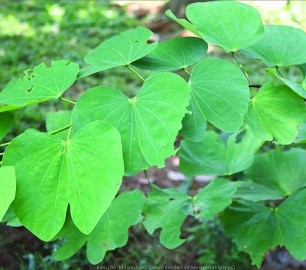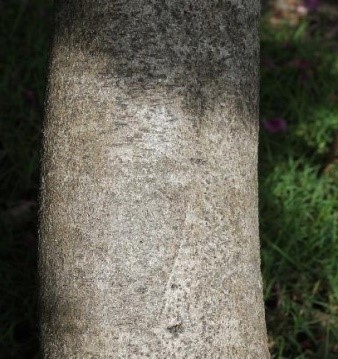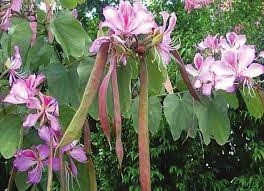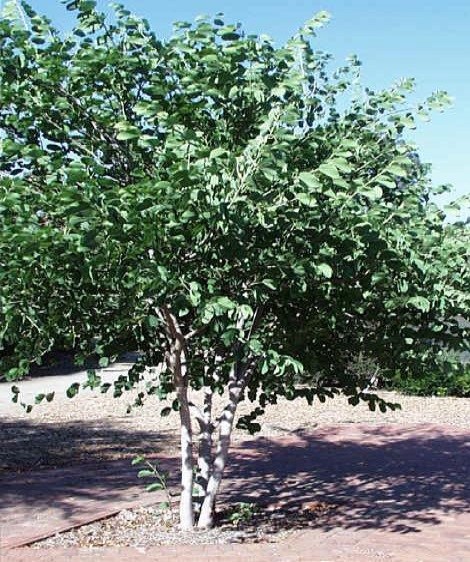Trees
Bauhinia variegata Linn
Bauhinia variegata Linn
Description :
A
small deciduous tree. The leaves are single (not compound). Each leaf is
divided into two pointed lobes by a cleft that goes one third of the way down
the leaf. The leaves are heart shaped and vary in five from 7 to 15 mm in
diameter. The bark is grey with vertical cracks and the young branches are
slightly hairy. The flowers are large, pink to white, fragrant and bloom
between March and April. The flowers are formed on the upper leafless branches.
The pods are flat, thick, curved and pointed. They vary in length from 15 to 30
cm. Pods mature during the rainy season. Small tree it is relatively fast
growing. Height growth of up to a meter a year and diameters of 15 cm in 8
years have been observed. It can be regenerated by seed or by vegetative
methods. Seed can be successfully stored for a year if it is protected from
seed borers. The wood is moderately hard with straight grains.
Distribution :
Native to Pakistan this tree is found in the sub-Himalayan tracts. It
has a wide distribution through the hills and plains of the sub-continent and
is widely planted as an ornamental tree in gardens and landscape improvement
projects. An intolerant tree of the moist sub-tropical temperate regions. It
has a precipitation range of 1000 to 2500 mm and a temperature range of -1 to
40°C. It will tolerate light frost. It does best on well drained, sandy loam or
loamy soils.
Uses :
It has potential as a
farm forestry tree. This is especially true in the foothill’s regions of
Pakistan. Implements, tool handles, fodder, food (pickle and chutney), tannin,
honey, medicinal (antidote for snake bite), and ornamental plantings. Flowering
buds are cooked in the form of a vegetable which is considered a delicacy.



